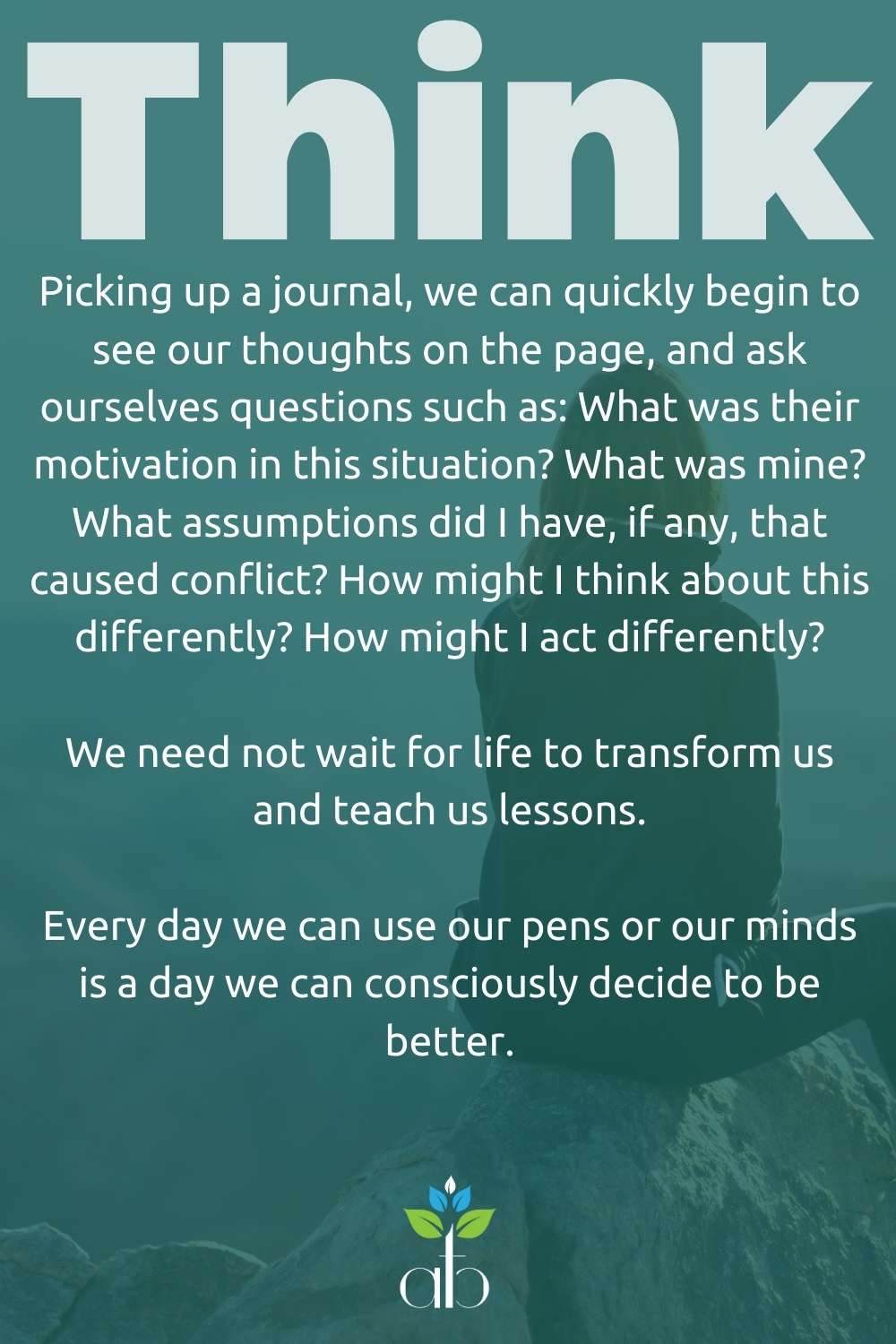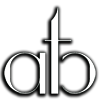Episode 354
Think About It

Reflection might be one of the most important skills we can learn as a human being – the exercise of discernment, directed towards our own thoughts and actions, with the purpose of self-improvement.
However, it’s extremely rare that we receive lessons in how to reflect, perhaps even from our best teachers or from our therapists.
Picking up a journal, we can quickly begin to see our thoughts on the page, and ask ourselves questions such as: What was their motivation in this situation? What was mine? What assumptions did I have, if any, that caused conflict? How might I think about this differently? How might I act differently?
We need not wait for life to transform us and teach us lessons. Every day we can use our pens or our minds is a day we can consciously decide to be better.
Hosts & Guests
Kurt Robinson
Transcript
Lets talk about thinking about it.
I remember there’s this presentation from the great psychotherapist RD Lane and he describes having a session with a client and the client comes in feeling quite depressed. Speaking to Mr. Lang for an hour there they managed to talk about all sorts of things. The fellow is laughing and having a good time and when he goes away, he says “The Hour is up and we barely talked about my depression.”
And Mr. Lang says “why don’t you go away and reflect on what happened here, maybe you weren’t that depressed during the session and maybe you can think about that.”
And I thought on one level its kind of brilliant and makes a lot of sense that Mr. Lane can take this fellow and show him that depression isn’t a fixed state. It isn’t something core and embedded into your identity.
On the other hand I had this criticism and thought “Mr. Lang, the reason this fellow is coming to you is because he doesn’t know how to reflect. This is difficult because I don’t think there are many institutions that actually guide us into reflection.
I suppose I had some personal development classes in high school talk a bit about decision making but for the most part these things are not addressed even though this is one of the most fundamental skills for life. Reflection. Contemplation. Thinking about things.
This is one of the reasons I am such a big advocate for journaling because it does give us that space to see our thoughts spread out on the page, to analyze a situation from different angles, to ask questions like “what might that person have been thinking?”
What might that person have been thinking in that situation? What might their motivations be?
How were they experiencing the situation and we can take a moment to close our eyes and put ourselves in our shoes. Or we can reflect on a time when we were in a similar situation to them and we responded as they did. What was that like? We examine our motivations we probably find that we have several. Its rare in my experience and the result of my reflection, rare that I find a instance in which a person only had one motivation.
So I think we should be cautious, this is kind of like the Buddhist law of multiple causes. Multiple causes within the world, within the external world and also within. Multiple factors, beliefs, nuture, impulses going on in the moment.
All of these kinds of things that influence us to act in a certain way. These things begin to be revealed to us when we start asking the question why did that person do that? Why did we do that?
That’s also a very exciting question.
And we can start to explore those themes and we can start to ask how we got into that situation. In Cognitive Behavioral Therapy the common question is: What is the assumption that I have about this situation? What must I believe that makes this a problem?
Or, to take it a step further we move into that area of imagination. How else might I think about this situation? What is a beautiful and accurate way of looking at this situation?
What might I do differently in the future?
These all questions effect how we use our imagination and creativity to come up with more questions to start to reflect on situations. Personally I have the habit when I get into some kind of minor disagreement I pause and I go to my journal and I start writing and asking, what is going on here? Am I right? Am I wrong? Even if I was right perhaps Im not right in this situation, perhaps I could have been even better.
Perhaps I could have expressed myself clearly in a way that was more respectful. Even if I had to set a boundary. These are the kinds of things that open up to us.
It might be difficult if we do think of an alternative course of action, it might be difficult to put it into practice the next time the situation comes around.
But it makes such a difference because we are prepared, because we are developing our toolset, our range of possible outcomes. A range of possible actions. All of these things are available to us in our internal world when we start to think about it.

New Episodes Every Weekday
11am Mexico City time
10 min episodes Monday - Thursday
1 h interview episode on Fridays
As an Amazon Associate I earn from qualifying purchases.
Stay Beautiful &
Stay Connected
